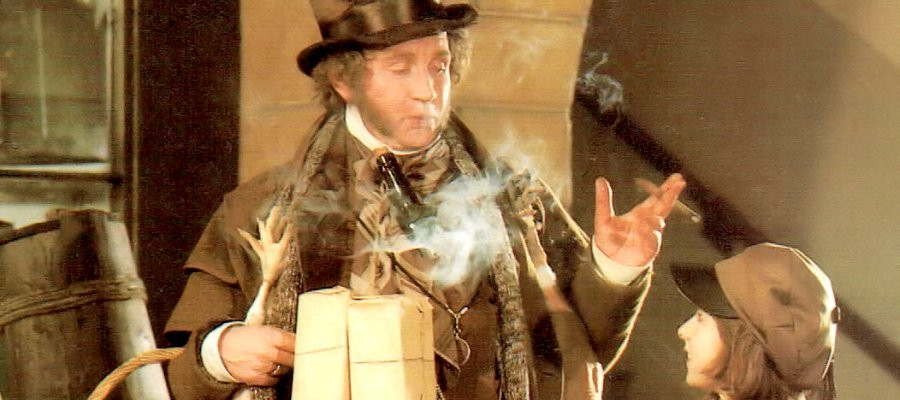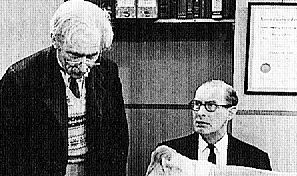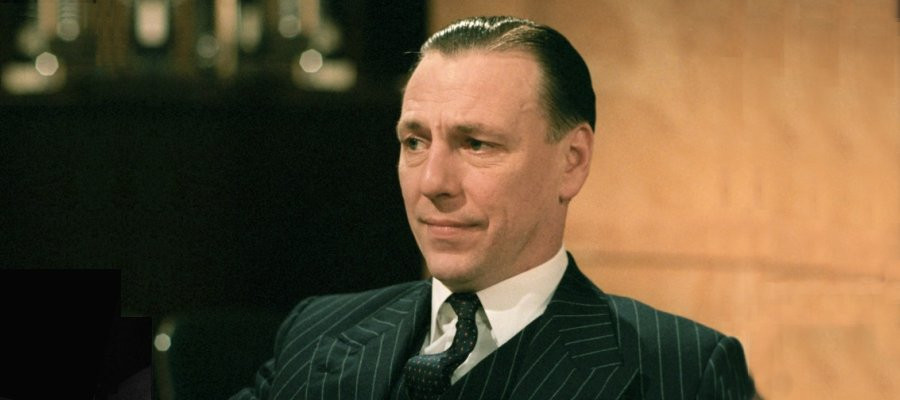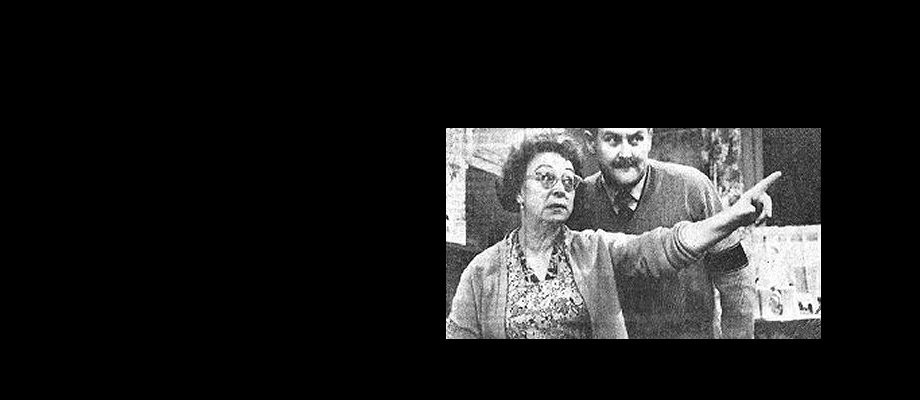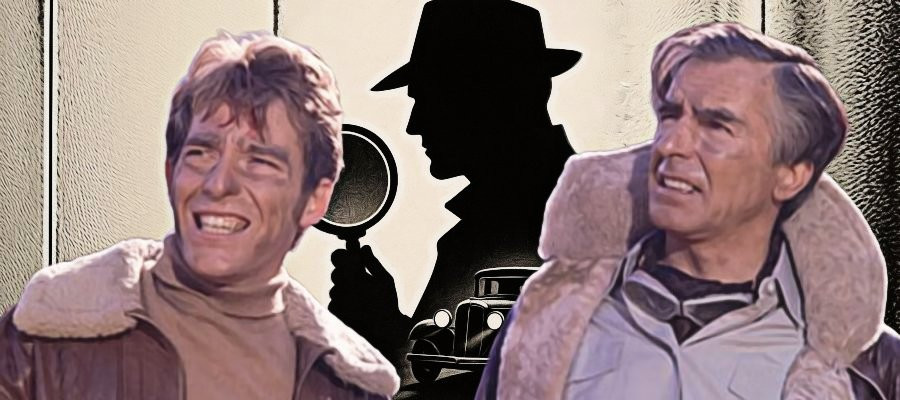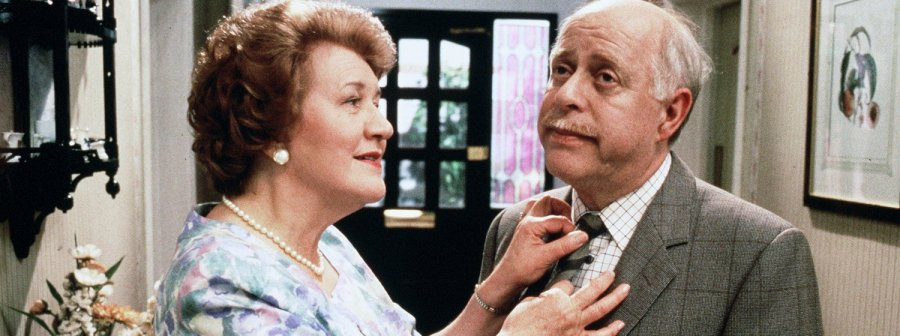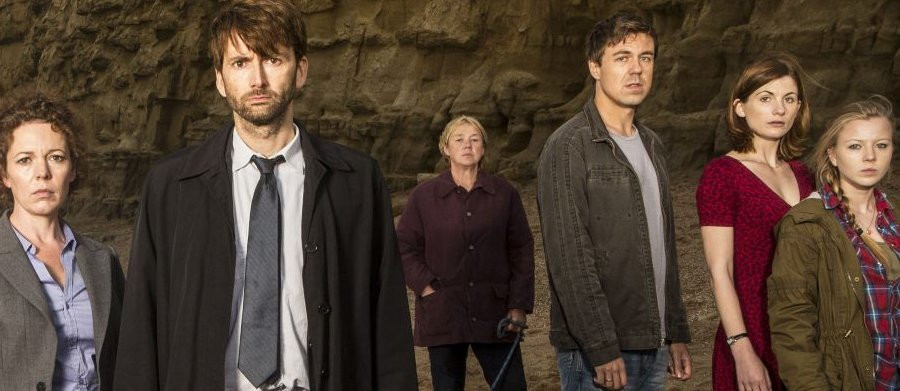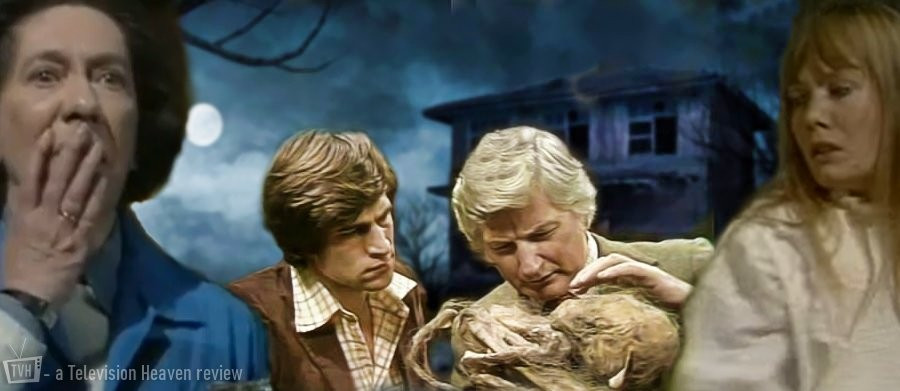
Beasts
1976 - United KingdomNigel Kneale is one of the most acclaimed television writers of the twentieth century. The creator of Professor Bernard Quatermass in The Quatermass Experiment, he was responsible for seminal adaptations of literary classics including the 1953 production of Wuthering Heights and the 1954 production of Nineteen Eighty-Four, and the notable science fiction work The Year of the Sex Olympics. As well as science fiction, he is well remembered for his horror work, including The Stone Tape, a Christmas ghost story that incorporated scientific elements, and “The Chopper,” a sadly lost episode of sci-fi anthology-turned-thriller series Out of the Unknown.
However, for all his work in the sci-fi/horror spectrum, Kneale's work was primarily about social concerns. His adaptation of realist play Look Back in Anger, his ultimately unfilmed treatise on suicide The Big Giggle and the sociological extrapolations of Quatermass IV, Nineteen Eighty-Four and Sex Olympics seem to have impassioned Kneale far more than his works for Hammer films or his script for Halloween III: Season of the Witch, the latter which he had his name removed from after being furious with the changes that were made to make it more horror-focused.
Just as he combined science fiction and horror elements in several of his works, he combined his style of sociological drama with horror to striking effect. An early expression of this was Murrain, a one-off television play broadcast in 1975 on ITV as part of ATV's drama strand Against the Crowd, a loose series about society's outsiders, concerning a woman accused of witchcraft by a superstitious and reactionary rural community. It was successful enough that ATV commissioned Kneale to write his own series of similarly styled TV plays. This became Beasts, a six-part anthology of standalone horror stories, each with a “bestial” theme. However, while strange and monstrous creatures are the recurring motif of the series, the real theme of the anthology is a social one. What Beasts is really about is bullies, in their many guises.
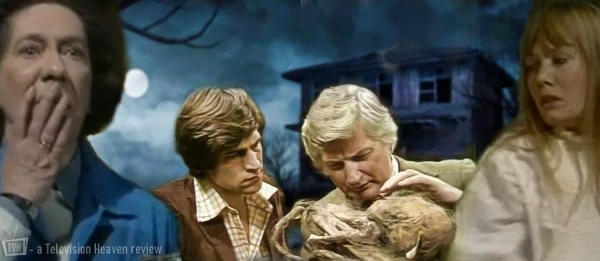
Never broadcast again on television, Beasts was finally released for home viewing in 2007, as a two-disc DVD release that included its forebear Murrain. The original broadcast showed the episodes in a variable order depending on the region of broadcast, but I'll be following the order on the DVDs, which is ostensibly the “correct” order of play, although as the stories are unconnected, they really can be viewed in any order. With the reputation of Kneale's work in general and Beasts in particular, I expected something very special. What I found was an interesting, sometimes powerfully unsettling, but very flawed series.
What's most noticeable, unfortunately, is how cheap the production is. While I'm certainly not one to balk at a low-budget film or programme, ATV clearly didn't grant Beasts the budget it needed, and I suspect most of what it did have went on the writer and the cast rather than any production costs. For most of the series, this doesn't really matter – indeed, for one of the episodes, it's a benefit – and the episodes each look and feel like a stage play that has been recorded for rewatching. However, there are times where the low budget really lets things down.
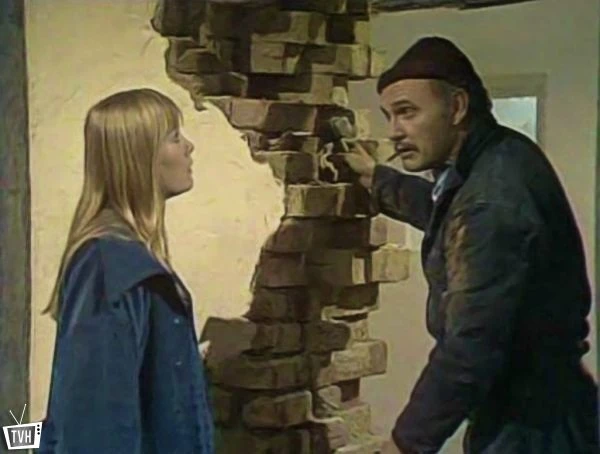
The assigned first episode, “Baby,” is a rural horror not entirely divorced from Murrain's concerns of witchcraft and local superstition, two of Kneale's perennial fascinations. Starring Jo Wymark (Midsomer Murders, Poldark) and Simon MacCorkindale (Manimal, Casualty, Falcon Crest), both early in their careers, as a young married couple recently relocated to the countryside. Jo (Wymark) is heavily pregnant and somewhat alienated at having to move to the sticks, due to her husband Peter (MacCorkindale) and his new posting as village vet. Peter is charming and light-hearted in company, but is aggressive and quick to anger when alone with Jo. Workmen renovating their new home uncover an earthenware pot walled up in the house, inside which is a mummified animal of some sort. It's a brilliantly designed creature, unrecognisable as anything specific but clearly believable as an animal, almost foetal in appearance. Peter, as a vet, is naturally fascinated by it and wants to examine it to work out what it is, but Jo is horrified by it and wants rid of it.
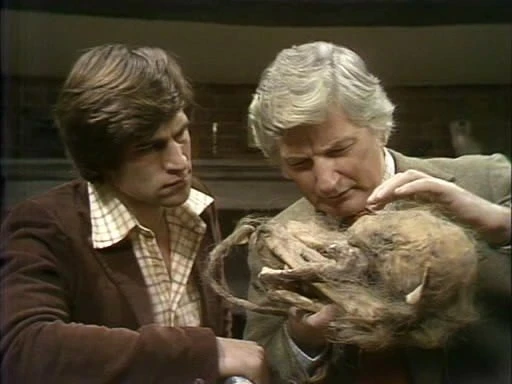
The presence of the creature's remains and Peter's refusal to simply destroy it leads to a growing sense of unease and disquiet for Jo and the viewer. Peter, although a bully to Jo, is himself bullied by his own superior, the wonderfully named Dick Pummery, a stereotypically drunken Irishman played with relish by T. P. McKenna (Crown Court, Callan, Monarch). There's not much in the way of subtlety in the two men's performances, which does work against the creepy tone of the piece but supports their increasingly overbearing characters. Jo's fear for herself and her unborn child, spurred by local stories of a witch and her familiar who cursed the livestock to become barren, increases to the level of hysteria.
The final scene, in which Jo confronts her fears, either makes the play or lets it down, depending on how you take it. I appreciate the uncertainty as to whether Jo is really facing something supernatural or merely becoming delusional, but in the final moments it's so unclear what's actually happened to her that the impact is blunted. It's also an example of poor budget badly affecting an essential moment. The sudden, brief reveal of the witch and her familiar, while unsettling, is so poorly realised that it verges on laughable. Contemporary viewers, particularly those who watched it when young, are on record as finding it terrifying, but watching it now, it's hard to take seriously. For me, it just about sits on the right side of uncanny, but it's a narrow thing, and it nearly derails the episode.
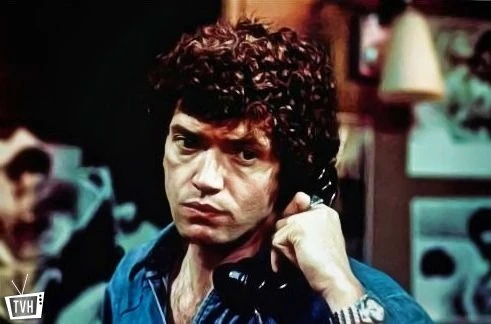
For all its flaws, though, “Baby” is a better than the next episode by a country mile. “Buddyboy” is a bizarre story that tries the patience. Full marks to Kneale for the creativity of the concept: a man takes over an abandoned dolphinarium with a plan to turn it into a porno theatre, only to be haunted by the ghost of a mischievous dolphin. It's not, I admit, one I've come across before. However, the horror aspect of the script is underdeveloped, and it focuses far more on the drama between aggressive porntrepreneur Dave, simple-minded hired help Lucy and frantic Hubbard, desperately trying to sell his cursed dolphinarium. Dave is played by Martin Shaw, a year before he reached stardom with The Professionals, and long before his recognisable modern roles as Inspector George Gently and Judge John Deed. He's none-too-subtle as the bullish and ambitious Dave, but then, he has to stand up against Wolfe Morris (The Black Tulip, Clochemerle, The Six Wives of Henry VIII) who dials it up to ten as the desperate and disturbed Hubbard. Pamela Moiseiwitch (North and South, Television Club) plays the vulnerable Lucy, and puts in a pretty dire performance.
It's a surprisingly adult story, not only in its subject matter of abuse and exploitation but also for the unexpected nudity. However, the supernatural element is so underworked as to seem bolted on, with the ending so abrupt and poorly explained that it makes the entire story incoherent. Unlike the rest of the series, which uses horror concepts to tell dramatic stories with personal stakes, “Buddyboy” would have worked better without the spooky stuff forced in. Even then, the wonky acting would have made it the weakest of the episodes. Whatever the proposed running order says, it was a wise decision by ITV not to start with these two episodes, given that they are the weakest of the six.
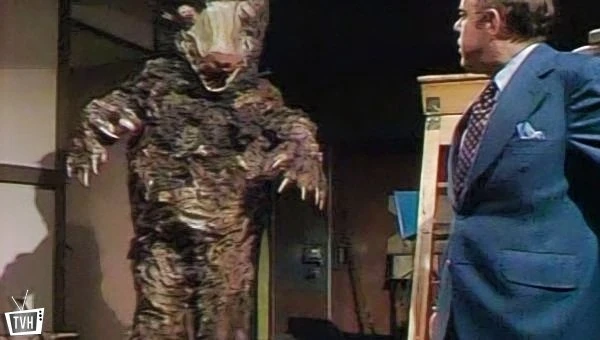
Far better is “The Dummy,” a story that stands out as being about horror media rather than being a supernatural story in itself. It stars the towering Bernard Horsfall (Ivanhoe, Enemy at the Door) as Clyde Boyd, an almost washed-up film actor whose one paying job is as the eponymous Dummy in a series of low budget, Hammer Horror-style monster flicks. Horsfall, whose performance often hinges on his marvellous voice, puts in a more physical and exaggerated performance than usual, but it suits the part. Run down, put-upon and treated with pity by his friends and contempt by the rest, Clyde is on the verge of a breakdown due to his wife having run off with rival actor Peter Wager (Simon Oates – Doomwatch, Breakaway). When Wager arrives on set to perform in the new Revenge of the Dummy film, and decides to rub his affair in Clyde's face, the actor finally snaps. Losing his mind completely, Clyde starts to believe he really is the monster, putting the oppressive costume back-on and engaging in a spree of violence and murder.
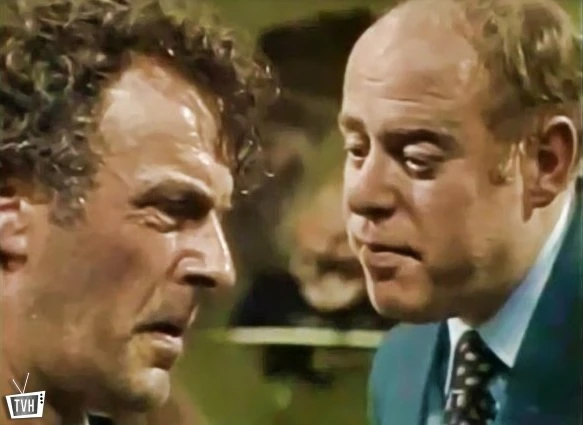
“The Dummy” starts with a brilliant visual gag, as the great lumbering monster stalks through a cemetery, both looking utterly unconvincing... and then you realise you're not watching a cheap, rubbishy realisation of a monster but a man very convincingly costumed as a cheap, rubbishy realisation of a monster. The episode is both a gripping psychological drama about a man who finally breaks after one humiliation too many, and a rather funny send-up of horror films and production line pictures. Kneale gently pokes fun at his experiences with Hammer, while attacking the endless parade of sequels and dumb creature features that he hated. (Another thing he hated was Doctor Who, itself not a million miles from Hammer Horror or monster movies, so it's amusing that most of the actors in this episode and several others in the series had already appeared on that programme – Horsfall several times, the most recently only a few weeks earlier.) Of the rich cast, standouts are Clive Swift (Keeping Up Appearances, Clayhanger, The Nesbitts are Coming) as ingratiating producer “Bunny” Nettleton and Thorley Walters (Crown Court, The Lotus Eaters, and many a Hammer film) as slumming-it stage actor Sir Ramsey.
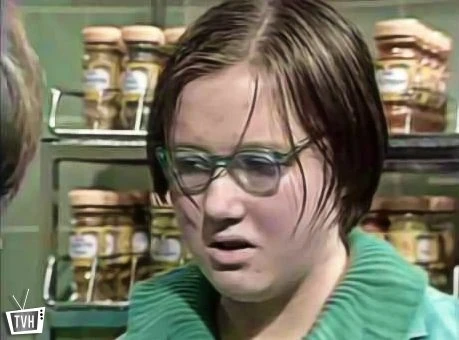
“Special Offer” has the most ordinary, down-to-earth and working-class setting of the series, and this helps make it one of the most effective and unsettling episodes. Set in a shabby, low-cost mini-supermarket, it stars a seventeen-year-old Pauline Quirke as shy, dowdy and unconfident shop girl Noreen. This was thirteen years before she began her starring role in long-runnng sitcom Birds of a Feather, but Quirke had already begun her impressive career in comedy and drama with You Must Be Joking! and presenting with her own show Pauline's Quirkes. Quirke is excellent in this, making the unpopular and harassed Noreen a sympathetic, three-dimensional character. She sports an unhealthy crush on her obsequious manager (Geoffrey Bateman – Leon, This Life, Lovejoy), who constantly belittles her in front of staff and customers, all the while flirting with the prettier, more confident and capable Linda (Shirley Cheriton, later, like Quirke, on EastEnders and Angels).
Strange and alarming events ensue as the shop is plagued by a poltergeist. It's amazing just how unnerving the unexpected explosion of a box of cornflakes, or a clattering collapse of bean tins can be. Blamed for the early upsets, Noreen insists she saw an animal knock things over, leading to the sarcastic manager suggesting it must be Brightways Billy, the shop's rodentine cartoon mascot. This merely gives the poltergeist form, and from then on, the manifestations become more severe and violent with each occurrence. Recalling that most documented poltergeist cases have hinged on troubled youngsters, usually adolescents, Kneale's script wastes no time suggesting it's Noreen herself unconsciously causing the disturbances, and thankfully doesn't spend too long on characters' disbelief before they turn instead to fear. As Noreen's emotional state deteriorates, the effects become worse, until the inevitable climax, like a cockney Carrie. An episode where the cheapness of the production actually benefits the story, it's a high point for the series. In most areas, this was chosen as the opening episode, and it's easy to see why. The episode also features Ysanne Churchman (Crossroads, Planet Patrol) and Lynda Marchal, better known as writer Lynda la Plante.
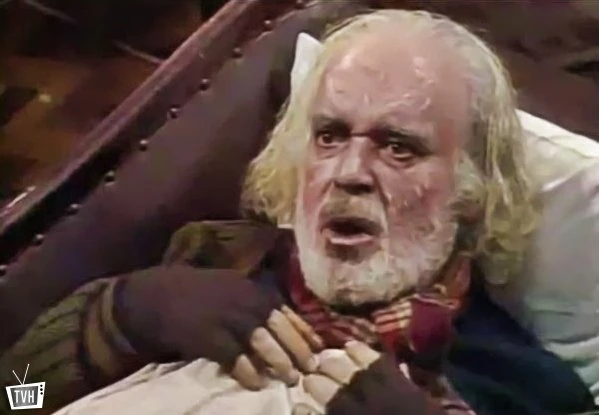
“What Big Eyes” is an episode that works by the strength of its central performances. A fresh-faced Michael Kitchen (Foyle's War, Always and Everyone) plays Bob Curry, an RSPCA officer on the trail of an illicit trade in wolves. This brings him to a pet shop, itself a front for a vivisectionist named Leo Raymount, played with wide-eyed frensy by Patrick Magee (A Clockwork Orange, Kidnapped, Play for Today). Never one to knowingly underplay, Magee chews the scenery but gets away with it, as Raymount is eccentric bordering on insane. We're in true mad scientist territory here, as it's revealed he is trying to uncover the secrets of lycanthropy, mixing blood and hormones between himself and wolves in the attempt to become a werewolf himself. We're kept questioning whether Raymount really has cracked the secret of lycanthropy until the end, but again, it's the personal drama that the story centres on. Magee's Raymount is a thoroughly nasty piece of work, verbally abusing his loyal and committed daughter, played by Madge Ryan (also of A Clockwork Orange and sundry weekly teleplay series, and actually three years older than Magee). It's the interplay between the actors that makes the episode work, with Kitchen's studied and subtle performance counterpointing Magee's OTT eccentricity, with Ryan shifting from downplayed subservience to her own astonishing outburst.
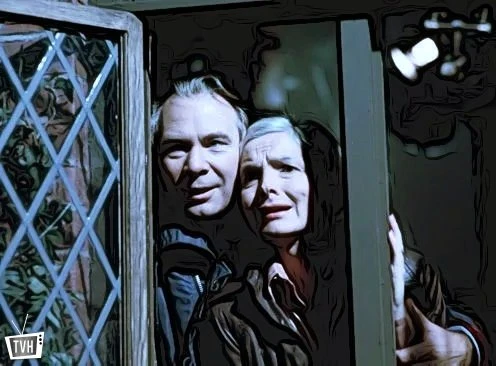
Finally, we have perhaps the best of the series, “During Barty's Party.” In spite of a reasonably large credited cast, this plays almost as a two-hander between Elizabeth Sellers (R3, ITV Television Playhouse) and Anthony Bate (Smiley's People, Tinker, Tailor, Soldier, Spy, Ivanhoe). Playing the frightfully middle-class suburban couple Roger and Annie Truscott, Sellers and Bate have to shoulder almost the whole episode and manage it brilliantly. Confined almost entirely within their own home, the story sees the couple assailed by an unseen but relentless pack of frighteningly intelligent rats. Part of the fear of poison-resistant “super-rats” that resurges from time to time, the rats are manifested purely through some remarkably unsettling and realistic sound effects, as they burrow beneath the floors and within the walls, cutting cables and increasingly isolating the couple.
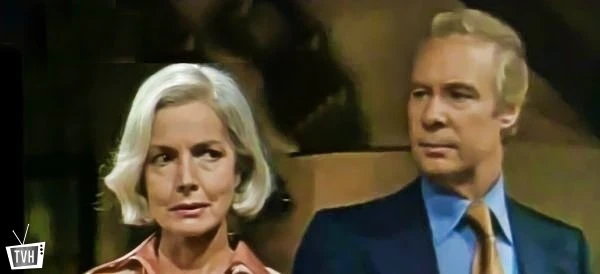
The episode begins with Annie having a vision of the impending rat attack, and she is far quicker to fear than Roger, who puts her down continually and refuses to take her seriously until it's far too late. While Sellers gives the subtler performance, Bate's transition from arrogance and dismissiveness to outright terror is more powerful. Aside from a few brief lines, the only other major player in the episode is Colin Bell (The Newcomers) as Barty, host of the Barty's Party radio show of the title. As Annie calls in, desperate to alert someone of the threat of the rats and get help, Barty becomes an unwitting part of the horror, as helpless as the Truscott’s in his own way. The tension mounts in a pared-down production that would work with virtually no changes as a stage play on a single set.
If Roger had listened to Annie instead of mocking her, of course, they could have escaped before the rats had infiltrated their home fully. Like the rest of the episodes, “During Barty's Party” hinges on a man who bullies and belittles his way through life. The (largely unseen) creatures that haunt the stories aren't the point of the series at all. Each episode sees events instigated or made worse by a man who tries to dominate those around him – in all but “The Dummy,” mistreating a woman he has a duty of care for. While the quality of individual episodes varies, Kneale's anthology shows us that it's men, grasping at what little power they have, who are the real beasts.
Review: Daniel Tessier
Dan describes himself as a geek. Skinny white guy. Older than he looks. Younger than he feels. Reads, watches, plays and writes. Has been compared to the third, fourth, fifth, sixth, seventh, eighth, tenth, eleventh and twelfth Doctors, and the Dream Lord. Plus Dr. Smith from 'Lost in Space.' He has also had a short story published in Master Pieces: Misadventures in Space and Time a charity anthology about the renegade Time Lord.
Dan's web page can be here: Immaterial
Seen this show? How do you rate it?
Seen this show? How do you rate it?
Published on October 17th, 2021. Written by Daniel Tessier for Television Heaven.


